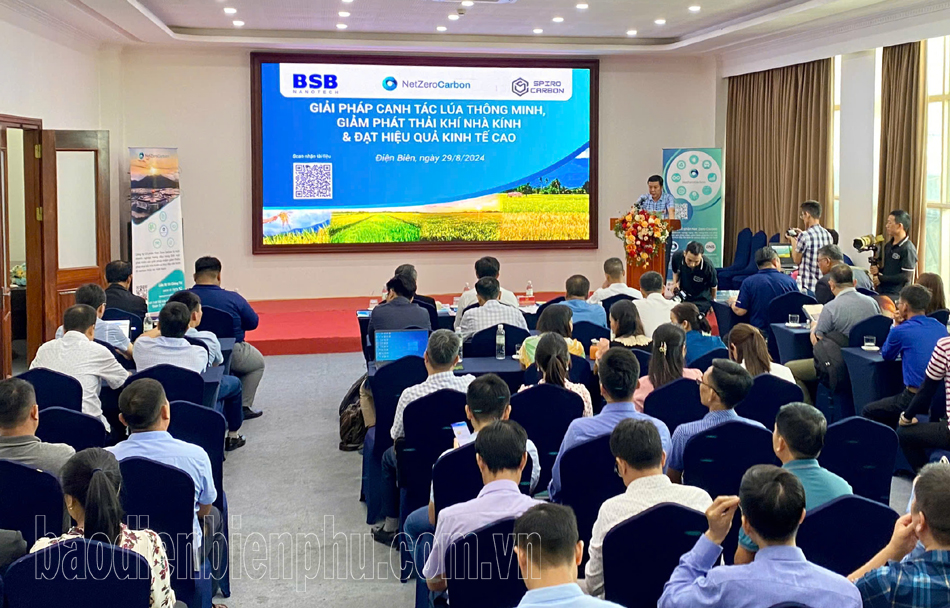
Attending the workshop were officials from the Department of Agriculture and Rural Development, Agricultural Service Centers of districts, towns and cities; representatives of enterprises, cooperatives and cooperative groups operating in the agricultural sector.
Delegates were introduced to smart rice farming solutions, reducing greenhouse gas emissions and achieving high economic efficiency; the process of planting and using naturally derived Nano products in smart rice farming; sharing implementation experiences and successful lessons from smart rice farming solutions in Thailand; introducing satellite-based carbon emission reduction measurement - reporting - testing technology in smart rice farming.
At the workshop, experts also shared details of the smart rice cultivation process of alternating wet and dry. Cultivation according to the model will result in lower emissions into the environment. Cultivation according to the alternating wet and dry process, combined with fertilization and spraying of pesticides as recommended, will help farmers reduce emissions by 3.5 - 4 tons/ha/rice crop. At the end of the rice production season, in addition to selling high-quality rice seeds, farmers also have another attractive source of income from selling Carbon credits thanks to greenhouse gas emission reduction cultivation.
Source: https://baodienbienphu.com.vn/tin-tuc/kinh-te/217741/giai-phap-canh-tac-lua-thong-minh-tai-dien-bien



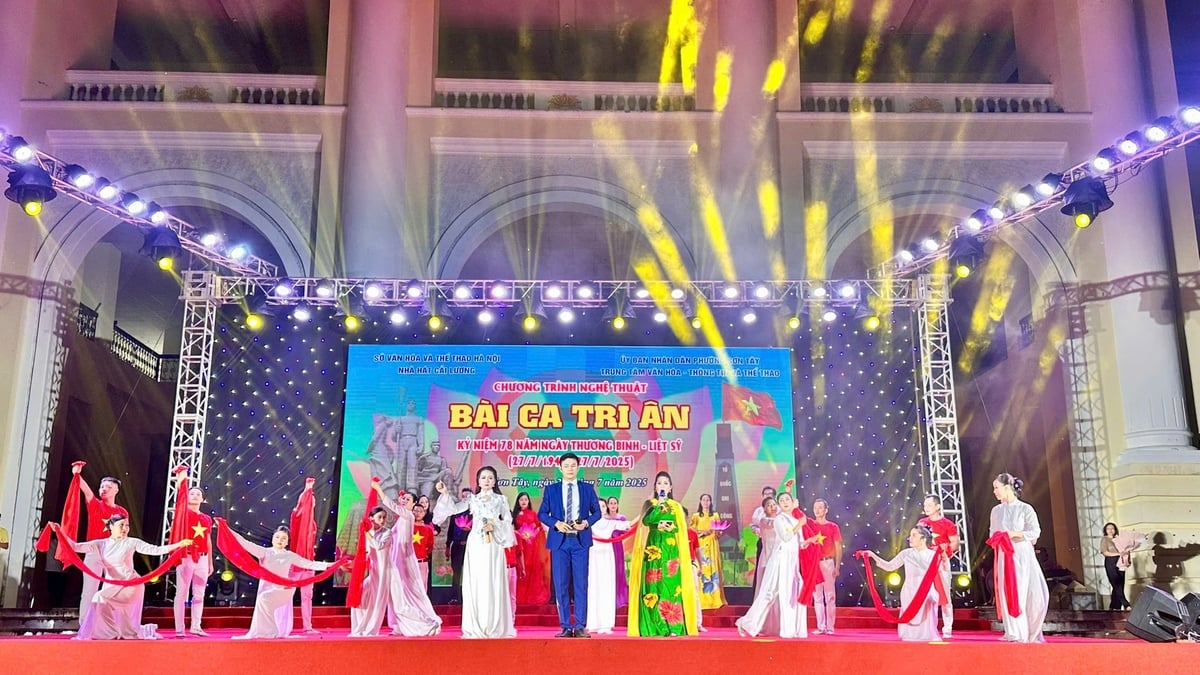

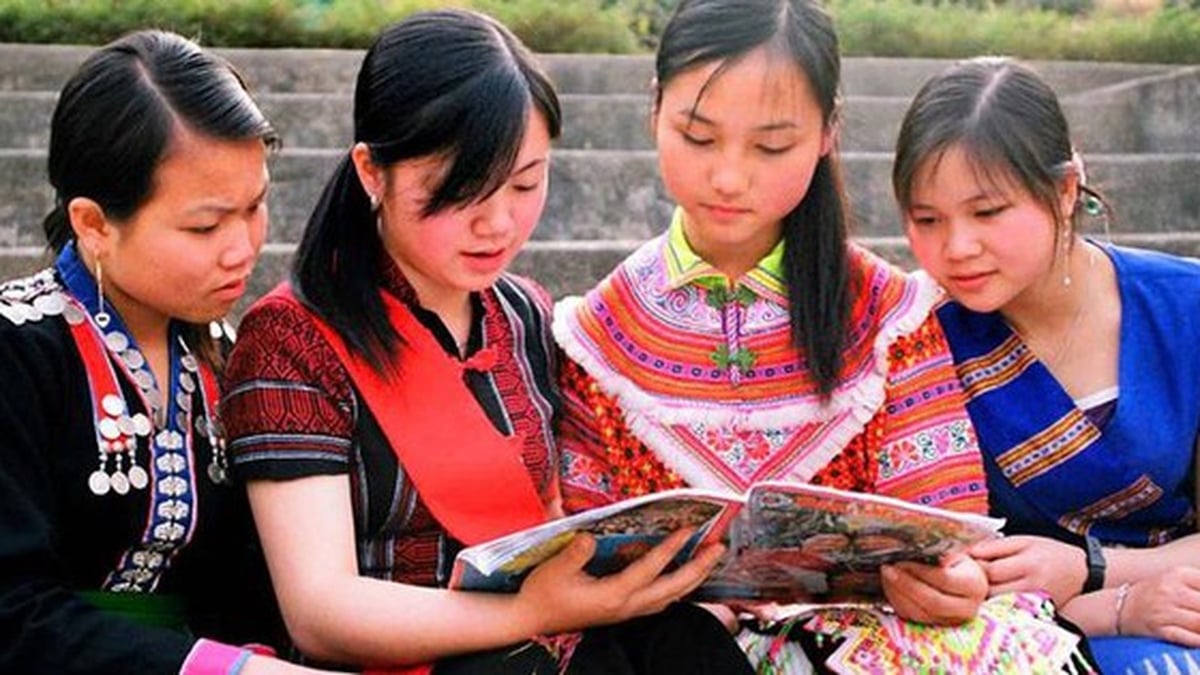

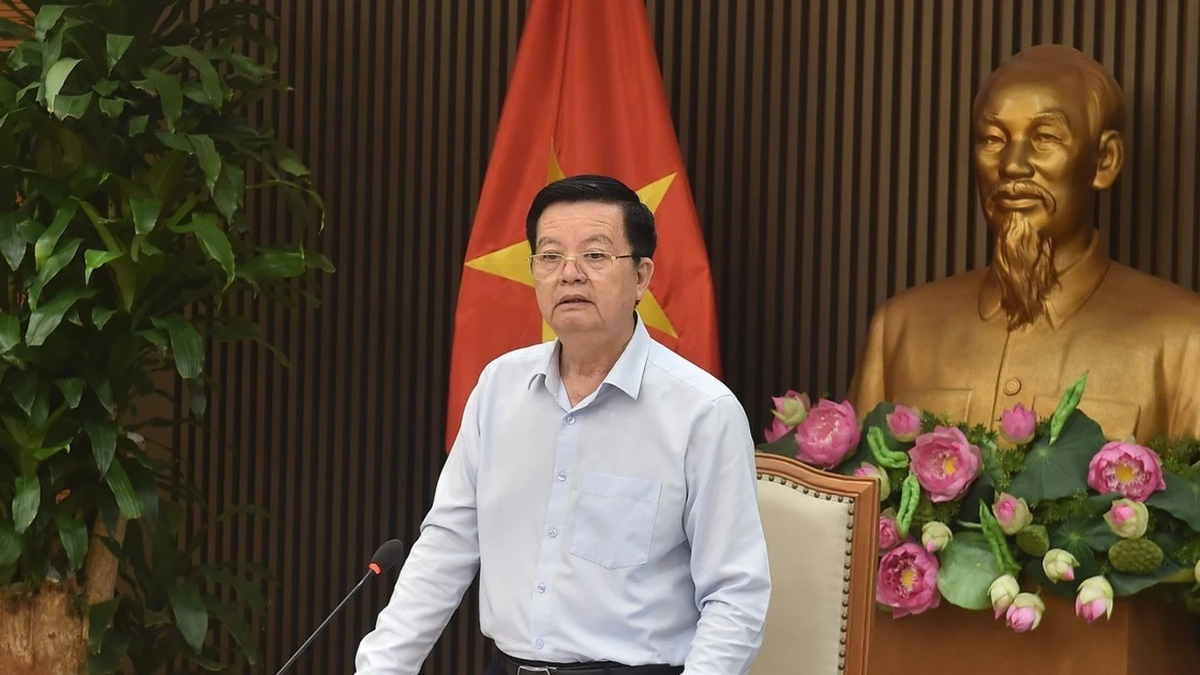

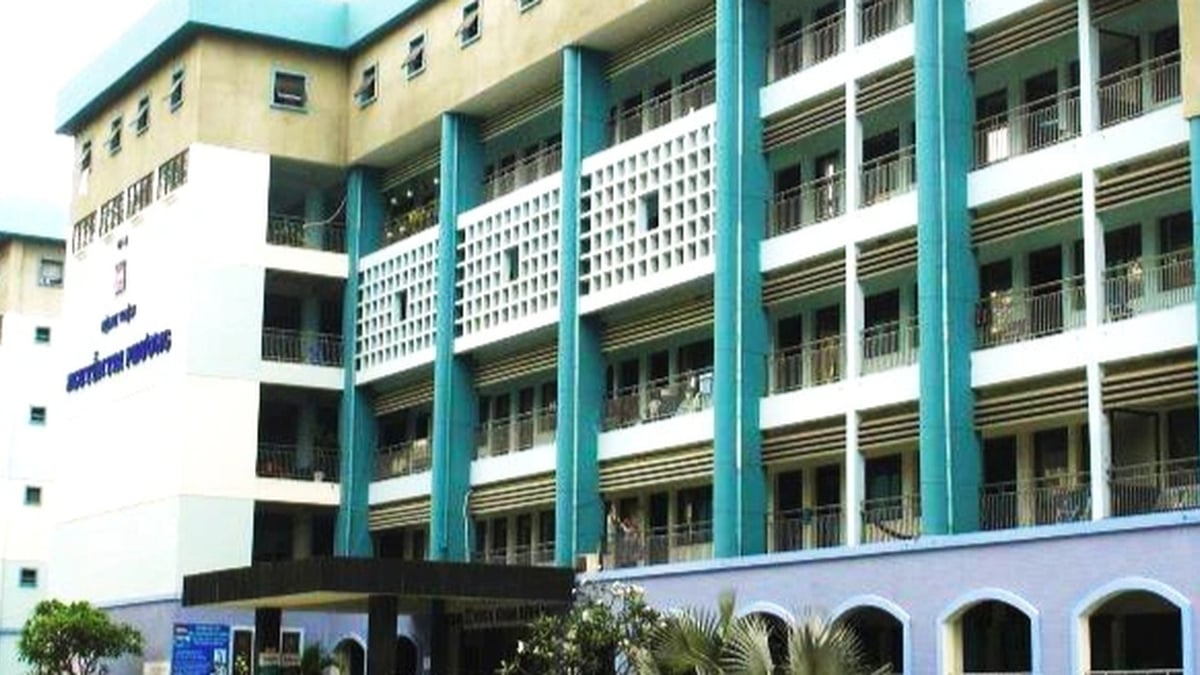











![[Photo] National Assembly Chairman attends the seminar "Building and operating an international financial center and recommendations for Vietnam"](https://vphoto.vietnam.vn/thumb/1200x675/vietnam/resource/IMAGE/2025/7/28/76393436936e457db31ec84433289f72)












































































Comment (0)